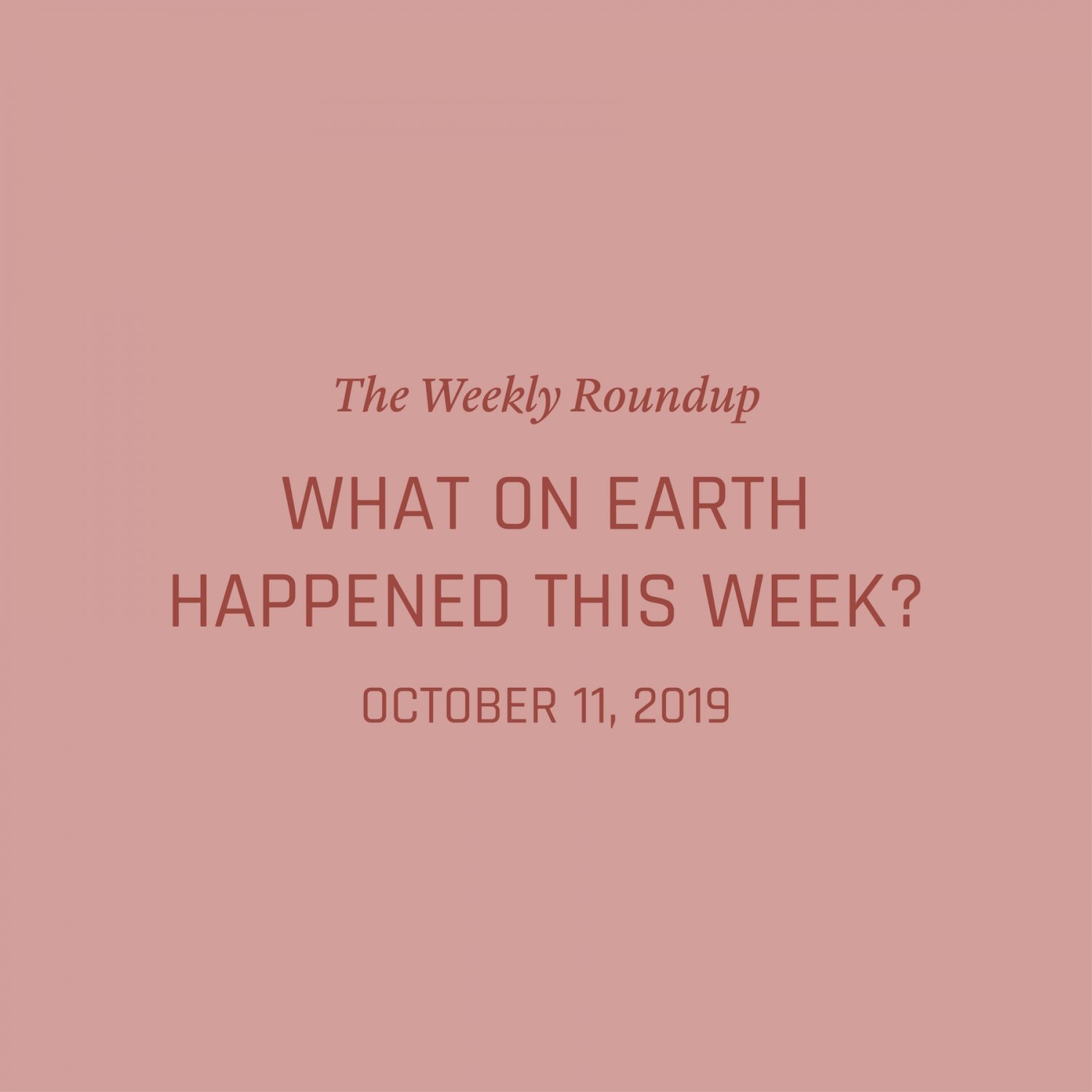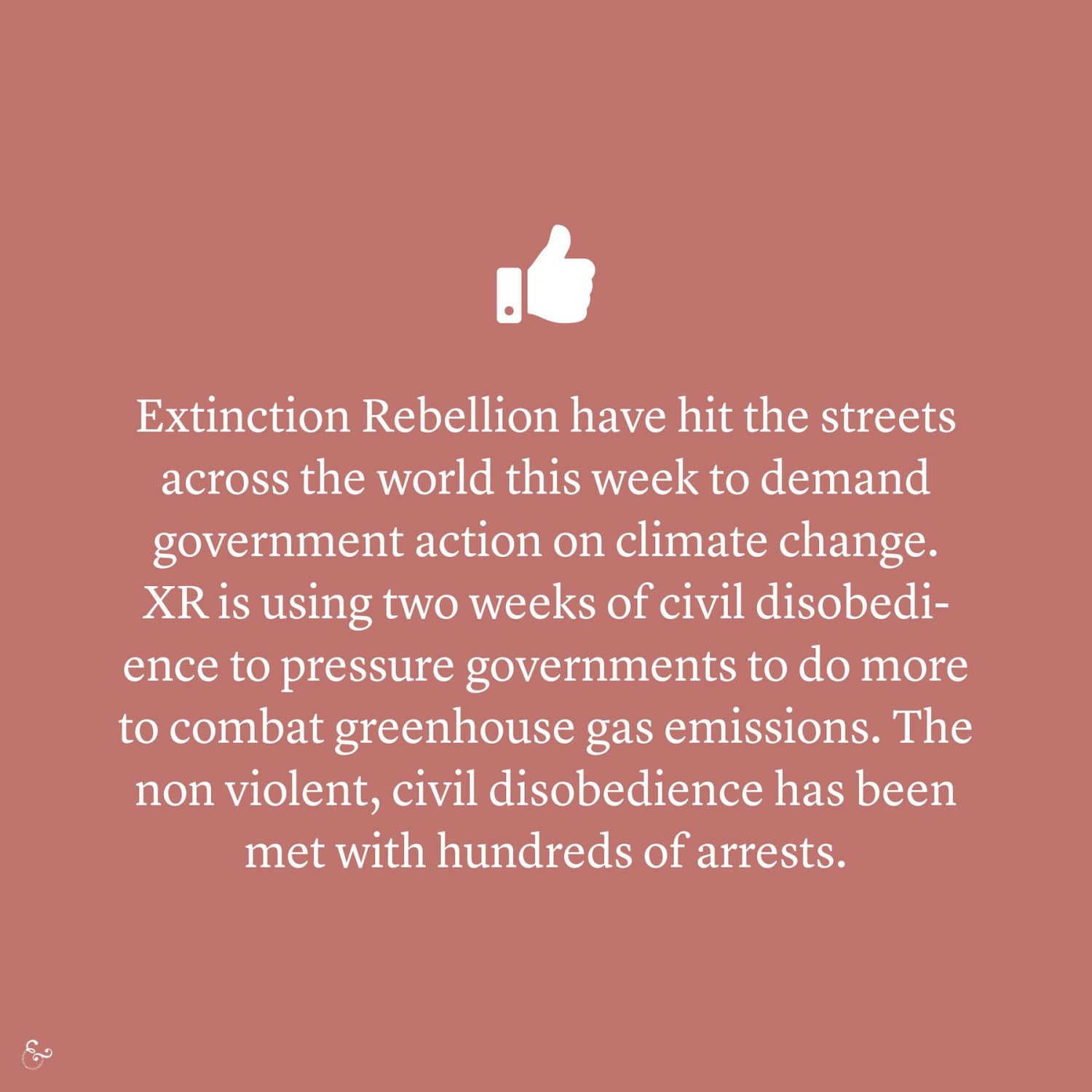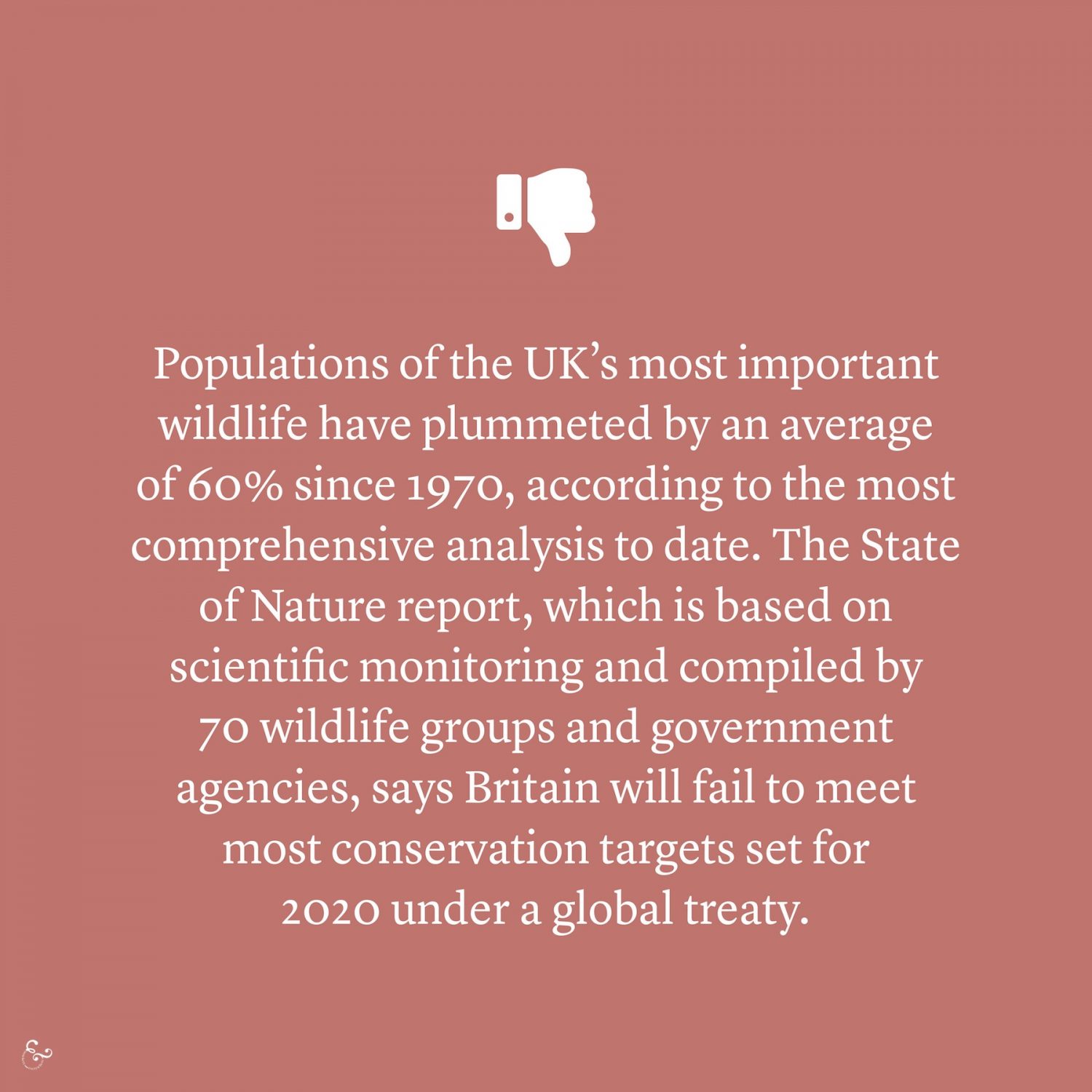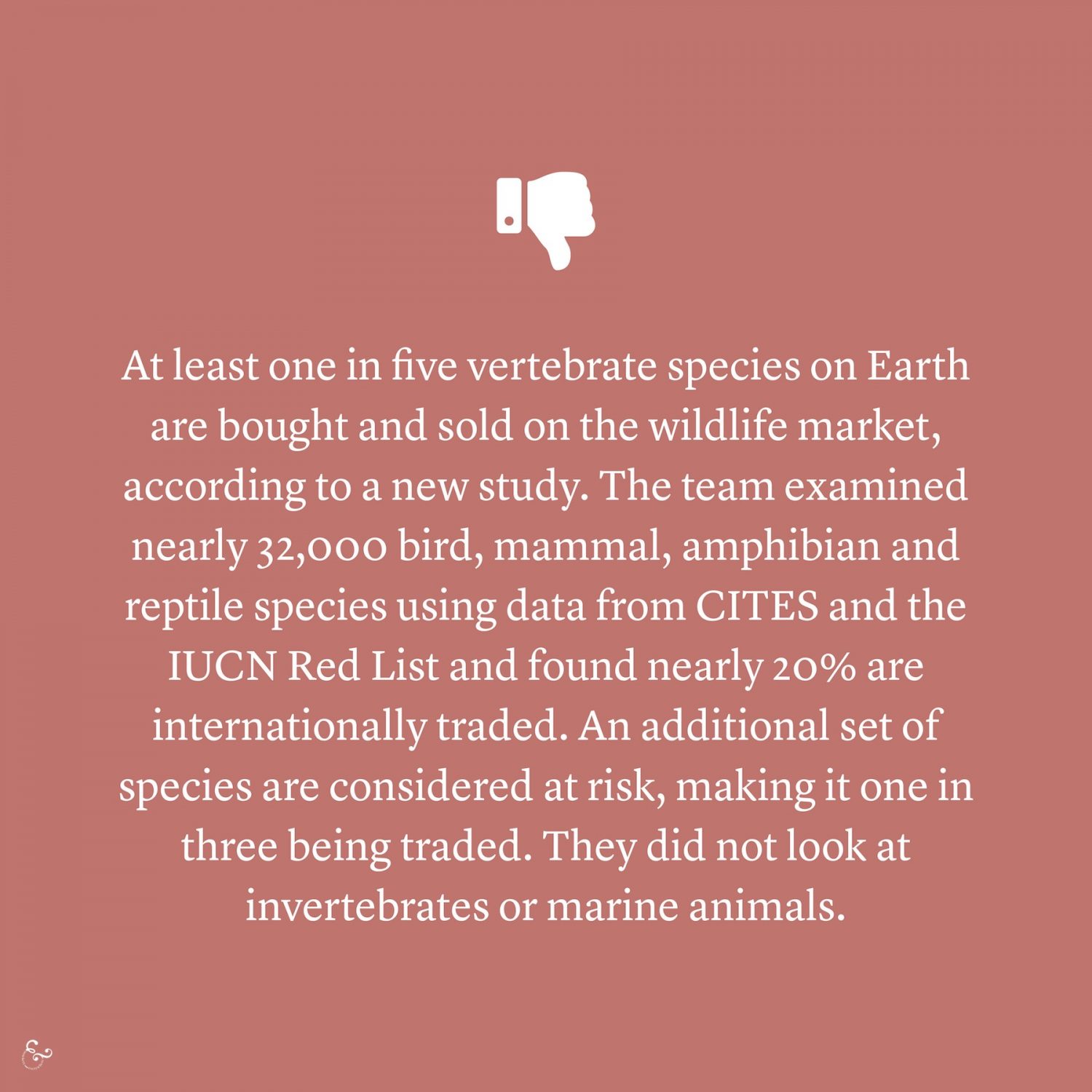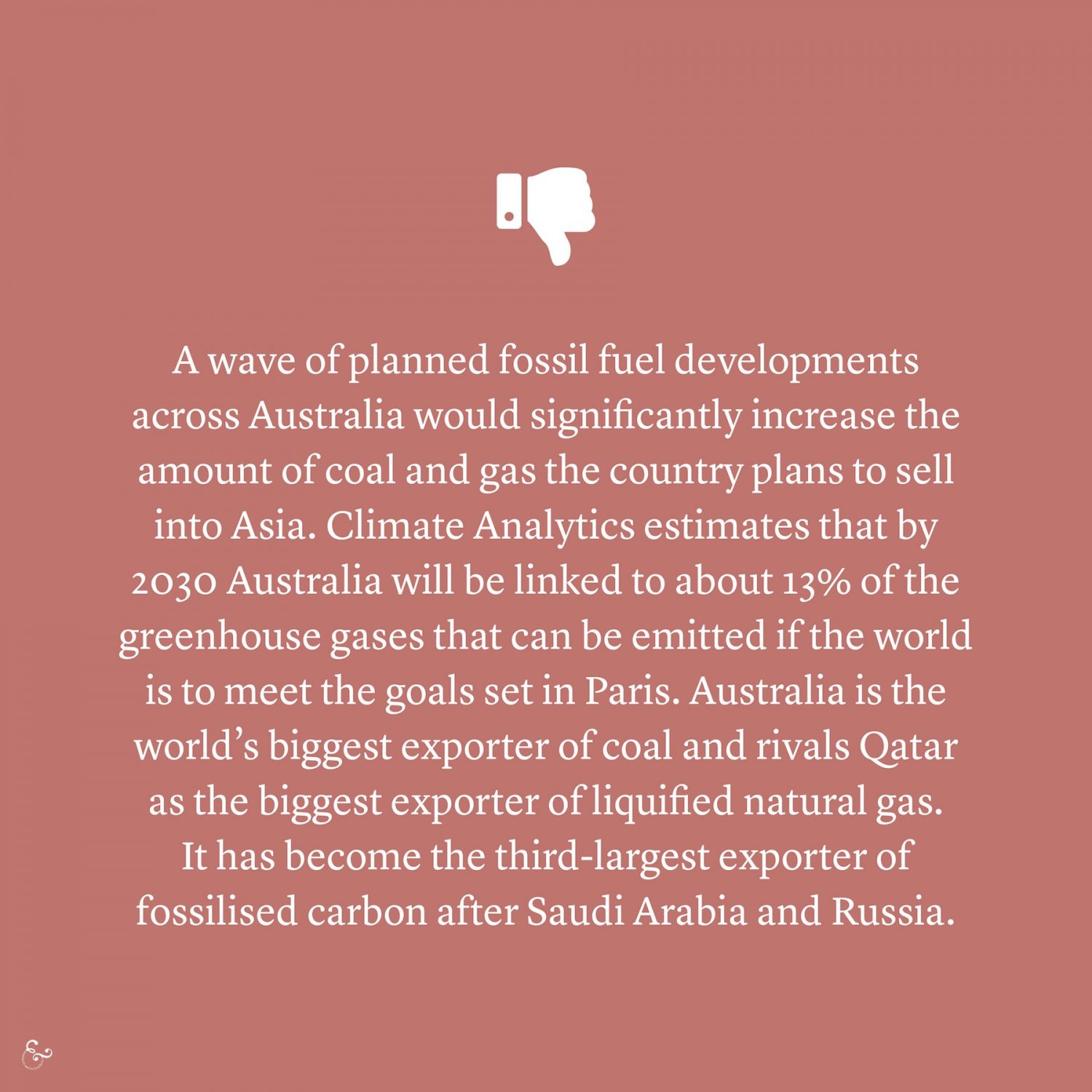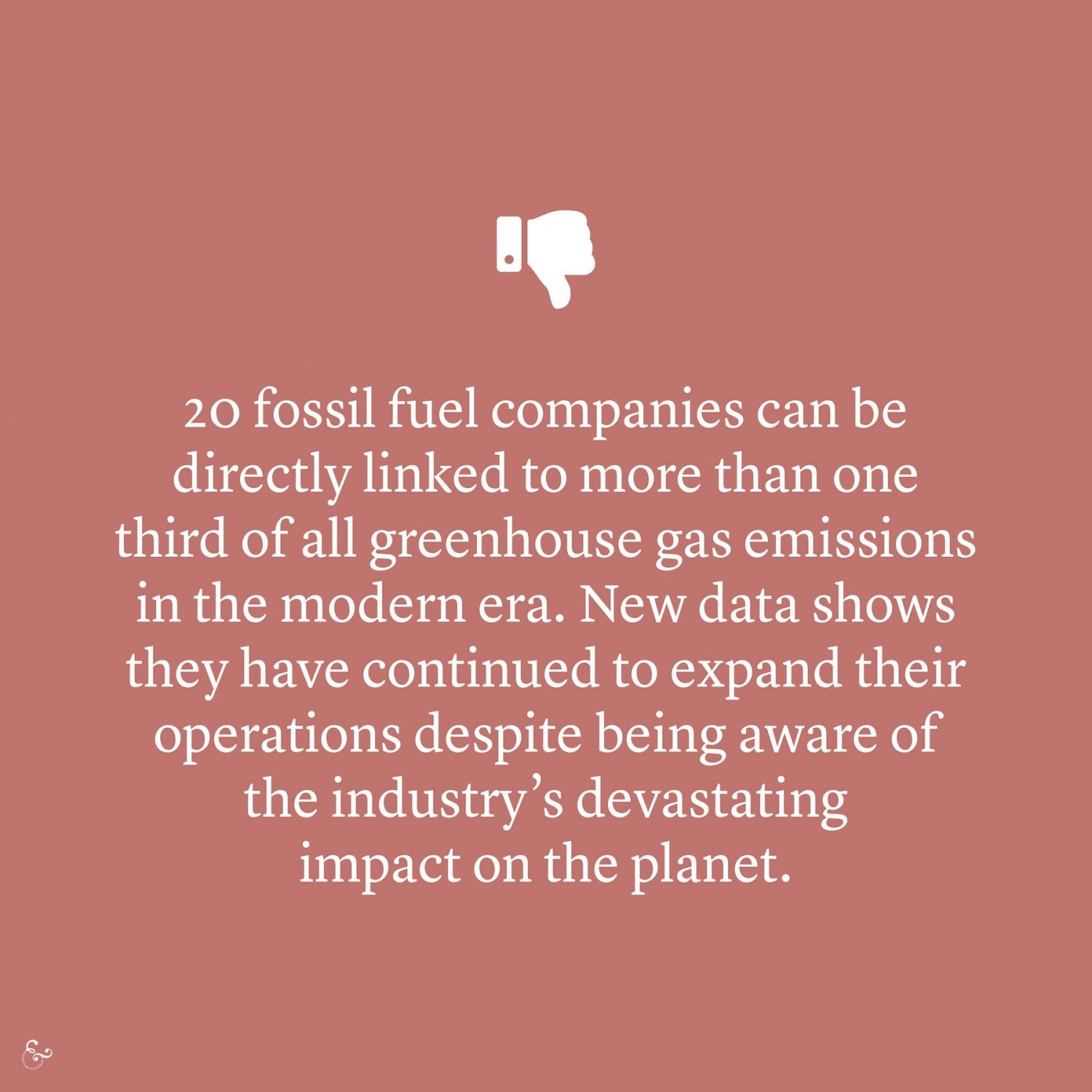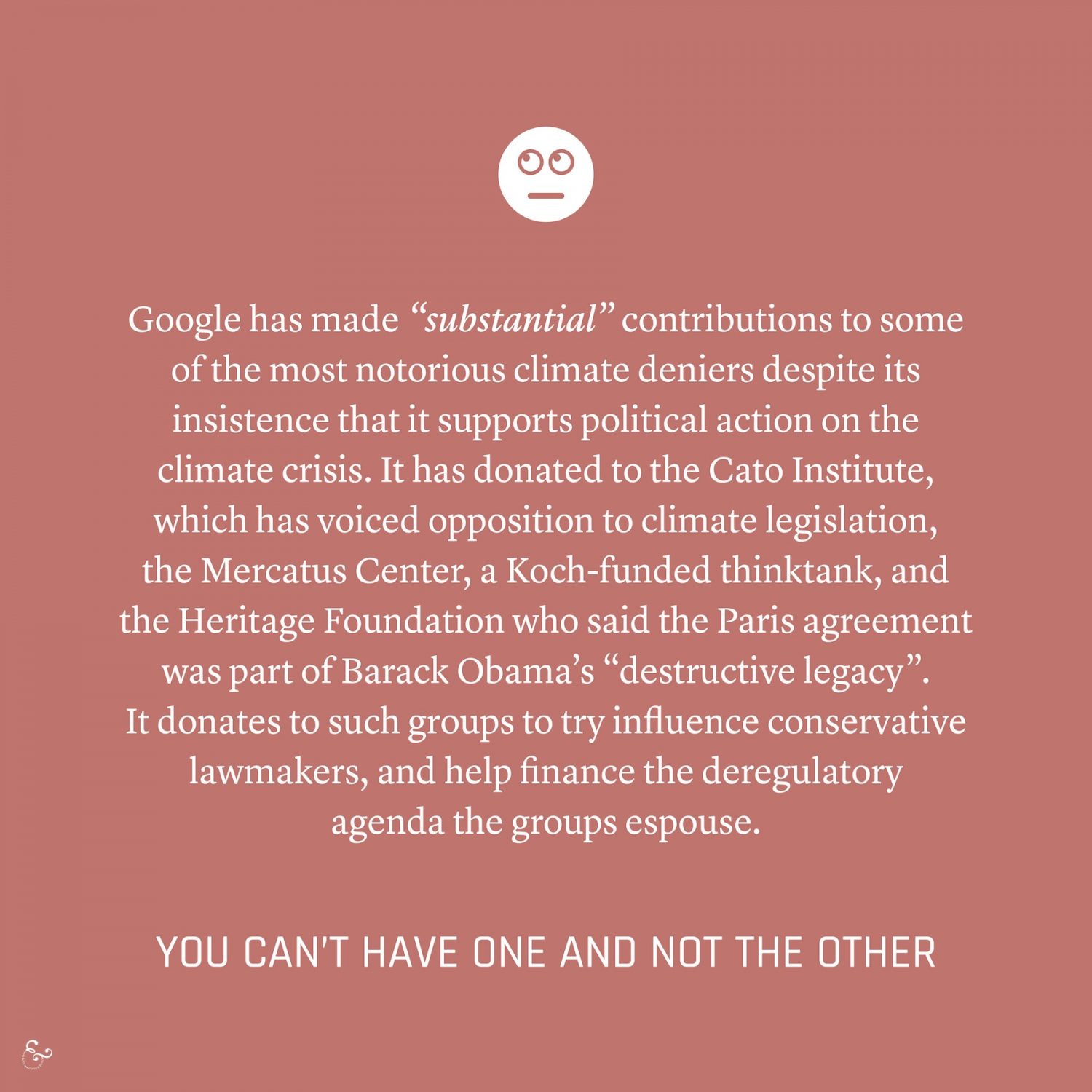World / Climate Change
1/ As the end of August sees summer shift into autumn for the northern hemisphere, it also marks the end of the melt season for the Greenland ice sheet. And using new satellite data, we show that – once all ice sheet processes are factored in for the past year – the Greenland ice sheet saw a net decline of 329bn tonnes in ice. It is important to remember that SMB is always positive at the end of the year – more snow falls on the ice sheet than melts at the surface. But the ice sheet also loses ice by the breaking off, or “calving”, of icebergs and from ocean melting at its edge. Therefore, the extra snowfall is needed in order to compensate for these processes. (Carbon 2rief)
UK / Animals
2/ Populations of the UK’s most important wildlife have plummeted by an average of 60% since 1970, according to the most comprehensive analysis to date. The State of Nature report, which is based on scientific monitoring and compiled by 70 wildlife groups and government agencies, says Britain will fail to meet most conservation targets set for 2020 under a global treaty known as the Convention on Biological Diversity. (The Times / The Guardian / Scotsman)
World / Animals
3/ At least one in five vertebrate species on Earth are bought and sold on the wildlife market, according to a study. To try and shine a light on this issue, the team examined nearly 32,000 bird, mammal, amphibian and reptile species using data from the Convention on International Trade in Endangered Species of Wild Flora and Fauna (CITES) and the International Union for Conservation of Nature (IUCN) Red List. They did not look at invertebrates or marine animals. They found that 5,579 of the species studied—18 percent of the total—are currently being traded internationally. An additional 3,196 species are considered at risk – making a total of 8,775 species, or about one in three. (Newsweek / World Animal Protection Report /BBC)
Italy / Climate Change
4/ Unusual weather driven by climate change is wreaking havoc on bee populations, including in northern Italy where the pollinating insects crucial to food production are struggling to survive. Bees are also being poisoned by pesticides while increases in carbon dioxide in the atmosphere affect nectar production. (Phys)
Australia / Climate Change
5/ A wave of planned fossil fuel developments by major companies across northern Australia would significantly increase the amount of coal and gas the country plans to sell into Asia and push the Paris climate agreement goals further beyond reach. If the proposals go ahead, the science and policy institute Climate Analytics estimates that by 2030 Australia, with 0.3% of the global population, will be linked to about 13% of the greenhouse gases that can be emitted if the world is to meet the goals set in Paris. Australia is the world’s biggest exporter of coal and rivals Qatar as the biggest exporter of liquified natural gas. It has become the third-largest exporter of fossilised carbon after Saudi Arabia and Russia. (The Guardian)
Australia / Climate Change
6/ The former Australian prime minister Kevin Rudd says three of the world’s biggest mining multinationals have run sophisticated operations to kill off climate action in Australia and continue to wield day-to-day influence over government through a vast lobbying network and an “umbilical” relationship with the Murdoch media. Rudd attributes the day-to-day influence of the sector to two mechanisms. The first is what he describes as the vast lobbying network it uses to pressure political parties. The second is its close relationship with the Murdoch media, which owns most of the country’s print media. (The Guardian)
World / Climate Change
7/ 20 fossil fuel companies whose relentless exploitation of the world’s oil, gas and coal reserves can be directly linked to more than one-third of all greenhouse gas emissions in the modern era. New data from world-renowned researchers reveals how this cohort of state-owned and multinational firms are driving the climate emergency that threatens the future of humanity, and details how they have continued to expand their operations despite being aware of the industry’s devastating impact on the planet. Some argued that they were not directly responsible for how the oil, gas or coal they extracted were used by consumers. Several disputed claims that the environmental impact of fossil fuels was known as far back as the late 1950s or that the industry collectively had worked to delay action. (The Guardian / Climate Accountability Institute)
The good news…
World / Climate Change
8/ Extinction Rebellion have hit the streets across the world this week to demand government action on climate change. Dutch police arrested 130 activists in Amsterdam after they blocked a bridge in the centre of the city. In France, hundreds of activists blocked a route to the national assembly in Paris for several hours but were later dispersed by police. In Brussels, demonstrators occupied the gardens of the royal palace while in Melbourne protesters said they would hold a “spring rebellion” of civil disobedience this week including blocking traffic. Extinction Rebellion is using two weeks of civil disobedience to pressure governments to do more to combat greenhouse gas emissions. (The Guardian / The Guardian 2)
Other notables…
One of Britain’s and northern Europe’s rarest and most elusive mammals has been discovered living in the east of England for the first time in 115 years. The return to Kent of the greater horseshoe bat has delighted and astounded conservationists, who are now examining whether climate change is shifting the species’ range. (The Guardian)
Excruciatingly thin grizzly bears in Canada are fresh evidence of the dire consequences of climate change and vanishing food sources for wildlife. Canada’s climate is warming twice as fast as the global average, devastating the salmon population, according to a report by Fisheries and Oceans Canada. It’s critical for grizzlies to fatten up now, before winter.
- A new study by researchers at the University of Maryland and the Chinese Academy of Sciences reveals a complex interplay between soil fungi and tree roots that could be the cause of rare-species advantage. (Phys)
- Australia’s central bank has delivered a clear warning that climate change is exposing financial institutions and the financial system more broadly to risks that will rise over time if action isn’t taken. (The Guardian)
- The pāua, New Zealand’s most famous shellfish, lauded globally for its iconic multi-colored shell, is under threat with climate change, new research reveals. (Phys)
- The UN’s Food and Agriculture Organization (FAO) pledged on Friday to work hand in hand with the people of the Pacific to improve nutrition, and mitigate the worst effects of climate change, which pose an existential threat to many island nations across the region. (UN)
- Bilbies have been reintroduced to the Mallee Cliffs national park in the far south-west of New South Wales in an effort to restore populations of the marsupial, which is regionally extinct in the state. Greater bilbies haven’t been seen in the national park for more than a century. (The Guardian)
- Tesco, M&S and several other UK supermarkets admit that they cannot guarantee that soya from deforested areas is not in their supply chain despite commitments to phase out its use. (The Guardian)
- A dying baby turtle that washed up on a beach in Florida had 104 pieces of plastic in its stomach. Experts say it was one of just dozens of young turtles that have starved to death in the area after eating microplastics in the sea this year. (Independent)
- A reward of €30,000 is being offered for information about the presumed death of a rare wolf in Belgium and her cubs. Naya was the first wolf to be sighted in Belgium in a century when she was first spotted in northeast Belgium in January last year. But neither Naya nor her cubs have been seen since May, when a night-vision camera operated near the Dutch border captured images of them. (Independent)
- An insecticide is likely to be behind the deaths of almost 200 native birds in northeast Victoria, Australia environment officials believe. (The Guardian)
- As the Dutch government tries to comply with a court order to cut nitrogen pollution, hundreds of angry farmers hit The Hague in protest. Tjeerd de Groot, an MP from the center-left coalition D66 party, proposed reducing nitrogen emissions by halving the country’s livestock population — cutting the number of pigs by 6 million and chickens by 50 million. (Politico)
